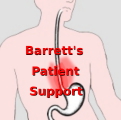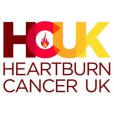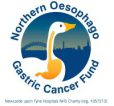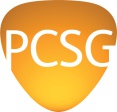Westminster Campaign's Report on Oesophageal Cancer and Barrett's Oesophagus
The Campaign's report was based on Freedom of Information requests made to health trusts across England, and was compiled after an unrestricted educational grant was made by Covidien, now part of Medtronic. It was published in January 2016.
The report pointed out the rise of 6,000 in diagnoses of Barrett's Oesophagus made in 2013-4 to 36,000. There were wide discrepancies over how detailed data were recorded, and wide variations found in how radio frequency ablation and other treatments were made available to patients, with London apparently accounting for a disproportionate number of endoscopic therapies. Improving that geographical variation is a key recommendation of the report, together with improving professional awareness of treatment options, the development of a best practice pathway, imporvement of NICE guidelines, emphasising the importance of diagnosing and treating Barrett's oesophagus, and better monitoring and recording of data.
Parliament and Oesophageal Cancer
Action Against Heartburn collaborated with the Oesophageal Cancer Westminster Campaign, to draw the attention of Parliamentarians to the big public health issue of reducing oesophageal cancer deaths in the UK by promoting earlier diagnosis. We would like Parliamentarians to use their influence to put this higher up the agenda of our health service.
The incidence of oesophageal adenocarcinoma, the most common type of oesophageal cancer in the UK, is rising dramatically, at a rate which exceeds that of any other solid tumour in the western world. It represents a significant public health and health economic concern.
The Government’s strategy on cancer envisaged reducing cancer deaths in England by 5,000 a year by 2014/2015 by achieving European average survival rates. It has also been estimated that 950 lives could be saved each year in the UK if the rate of early diagnosis and outcomes of oesophago-gastric cancer matched the best in Europe.
Early diagnosis makes a great difference in outcomes for this cancer, where there is a precursor condition, Barrett’s Oesophagus, with a well-understood symptom of persistent heartburn.
Oesophageal cancer 5-year survival for adults in England and Wales is low at 15%. It affects a relatively large number of people (about 8,300 diagnoses a year in the UK, or 2.5% of all cancer cases). The equivalent 5-year survival and incidence figures for other cancers are: breast 87% (50,300); prostate 85% (41,700); stomach 19% (7,100); lung 10% (43,500); pancreatic 3% (8,800). The Cancer Research UK report Beating Cancer Sooner: Our Research Strategy includes oesophageal cancer as having substantial unmet need.
Outcomes for oesophageal cancer are worse than some other cancers that appear to receive more public attention. There are opportunities available for improving the situation by adopting our 10 point plan:
Our 10 point plan:
- Support the Government’s Be Clear on Cancer campaign, due to be run on an all England basis from 26 January 2015, and hopefully extended to Scotland, Wales and Northern Ireland.
- Recognise the importance of Barrett’s Oesophagus diagnosis, surveillance and treatment as a long term contributor to reducing deaths from oesophageal adenocarcinoma.
- Ensure that the right endoscopy resources and training are available to help diagnose Barrett’s Oesophagus, adenocarcinoma and other oesophageal conditions.
- Continue the development of GP diagnostic tools such as cytosponge (the ‘sponge on a string’).
- Promote timely referral from GPs for specialist examination for unresolved persistent heartburn and other relevant conditions.
- Encourage pharmacists to give relevant advice to customers who are purchasing over-the-counter heartburn remedies.
- Support the UK Barrett’s Oesophagus Registry both by funding and by making it easier to obtain patient consent for their records to be used for cancer-related research.
- Encourage more research for better treatment for oesophageal adenocarcinoma and squamous cell carcinoma.
- Improve the post treatment quality of life for oesophago-gastric patients, especially in relation to digestion issues after surgery.
- Open a dialogue with the pharmaceutical industry to improve the labelling on over-the-counter remedies for conditions (eg persistent heartburn) that should be investigated medically for underlying causes.
<< New text box >>
Adobe Acrobat document [352.4 KB]
Early Day Motion no 623 in 2015
As at 7 January 2015, Early Day Motion no 623 attracted 42 signatures from MPs:
That this House notes that the UK has the highest incidence of oesophageal adenocarcinoma in the world and that incidence is rising; further notes that there are over 8,000 people diagnosed with oesophageal cancer every year in the UK; acknowledges that the survival rate for oesophageal cancer is one of the worst of any cancer, with only 15 per cent survival after five years; further notes that diagnosis for the condition Barrett's oesophagus which can lead to oesophageal cancer is low and that public awareness of the significance of persistent heartburn as a risk factor is very low; welcomes the work of the Oesophageal Cancer Westminster Campaign, a campaign group of patient groups, clinical experts, industry and bereaved families; further welcomes the national Be Clear on Cancer campaign on oesophageal cancer; and calls for the Government and the Department of Health to regard the diagnosis and treatment of Barrett's oesophagus and oesophageal cancer as a national priority to save lives.
Adjournment Debate 23 February 2015
We were absolutely delighted that the late Mike Weatherley MP secured the opportunity for an adjournment debate in Parliament on Monday 23 February 2015.





















